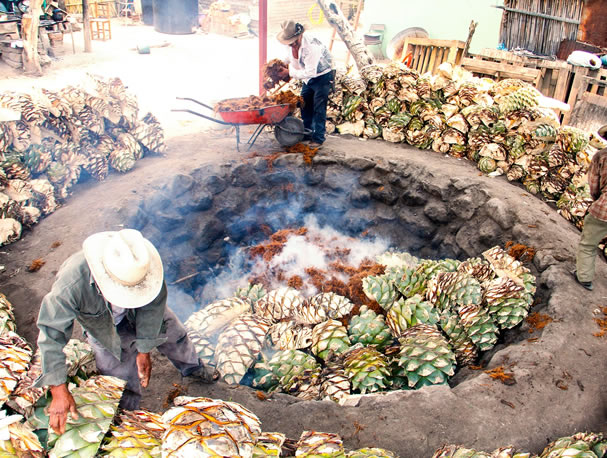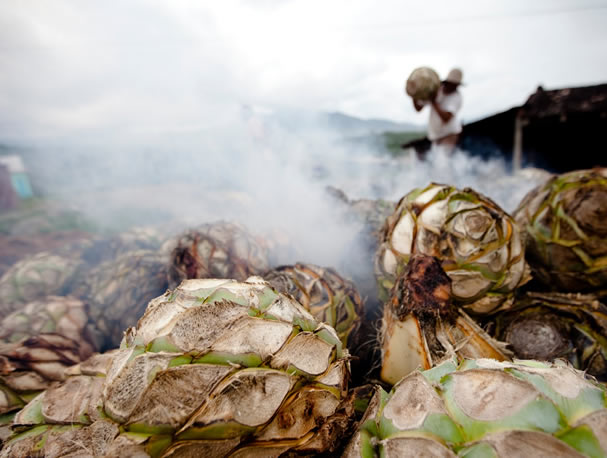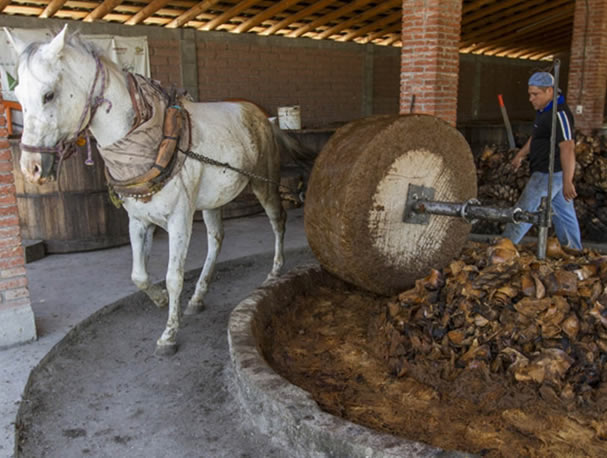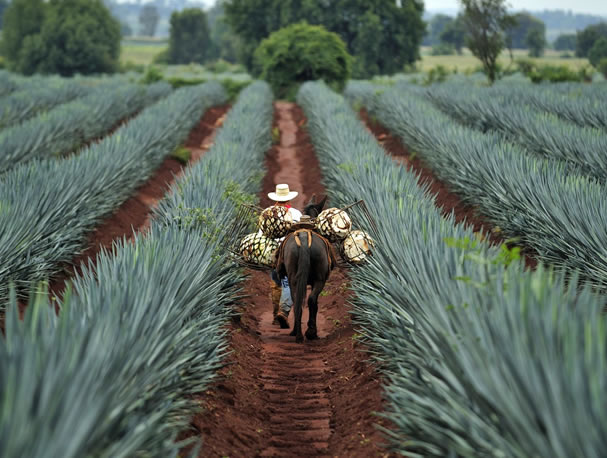
Mezcal is a distilled spirit made from some varieties of agave plant, which is found in México.
Mezcal is a distilled spirit made from any variety of agave plant, which is mainly found in Mexico. It is made from the ‘heart’ of the agave plant, also called as the ‘piña‘, which is cooked underground, in small, rock-faced pits for over three days.
This slow cooking process causes smoke to infuse the agave with a deep, woody, and earthen taste. Its important to say that Mezcal is considered as the most natural and organic Spirit due its elaboration process and its 100% natural ingredients.
Legally, this spirit must be made with 100% agave, making it suitable for gluten-intolerant people and keeping it reassuringly free of artificial ingredients. It can only be made in allocated states in Mexico, actually, 9. Chanul Mezcal is elaborated in Oaxaca, the most representative house of Mezcal.
Chanul Mezcal is made in Oaxaca, the most representative cradle of Mezcal.


Mezcal is a distilled spirit made from some varieties of agave plant, which is found in México.
Mezcal is a distilled spirit made from any variety of agave plant, which is mainly found in Mexico. It is made from the ‘heart’ of the agave plant, also called as the ‘piña‘, which is cooked underground, in small, rock-faced pits for over three days.
This slow cooking process causes smoke to infuse the agave with a deep, woody, and earthen taste. Its important to say that Mezcal is considered as the most natural and organic Spirit due its elaboration process and its 100% natural ingredients.
Legally, this spirit must be made with 100% agave, making it suitable for gluten-intolerant people and keeping it reassuringly free of artificial ingredients. It can only be made in allocated states in Mexico, actually, 9. Chanul Mezcal is elaborated in Oaxaca, the most representative house of Mezcal.
Chanul Mezcal is made in Oaxaca, the most representative cradle of Mezcal.

A HISTORY BRIEF
Mezcal is a mestizo beverage, meaning its roots go back to European and indigenous traditions, thereby creating a new, "native" product.
Agaves were used for centuries by the indigenous cultures of the Americas in many ways, producing clothing, shoes, building material, paper, tools and much more.

Its consumption was closely connected to religious ritual and limited to certain social stratum mainly integrated by priests, military and politic leaders. The plant itself was regarded sacred and inhabited by the goddess Mayahuel.
Traditionally Mezcal is produced in small-scale rural distilleries with raw materials coming from surrounding estates and mostly for consumption within the family and friends. Not for sale stuff in a lot of cases.
TYPES OF MEZCAL
As it can be made from over 30 different types of the agave plant, there are many different types and flavors. Mezcal production is a specialized, artisanal process that is reflected in its price.
The majority of this liquor is made from Espadín, and the flavor of this is very suitable for almost all the palates. Chanul Mezcal is made with this agave plant in its regular production, but we are preparing more “flavor surprises” for special editions and seasonalities.
Then, as we say, are a lot of variants of Mezcal, but the most common are:
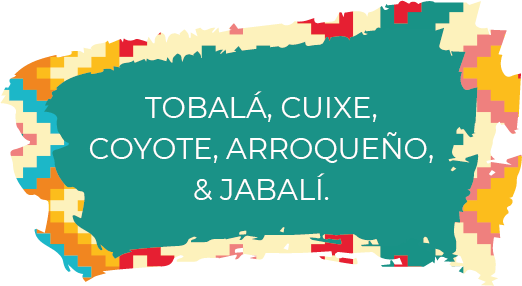

Its consumption was closely connected to religious ritual and limited to certain social stratum mainly integrated by priests, military and politic leaders. The plant itself was regarded sacred and inhabited by the goddess Mayahuel.
Traditionally Mezcal is produced in small-scale rural distilleries with raw materials coming from surrounding estates and mostly for consumption within the family and friends. Not for sale stuff in a lot of cases.
TYPES OF MEZCAL
As it can be made from over 30 different types of the agave plant, there are many different types and flavors. Mezcal production is a specialized, artisanal process that is reflected in its price.
The majority of this liquor is made from Espadín, and the flavor of this is very suitable for almost all the palates. Chanul Mezcal is made with this agave plant in its regular production, but we are preparing more “flavor surprises” for special editions and seasonalities.
Then, as we say, are a lot of variants of Mezcal, but the most common are:





